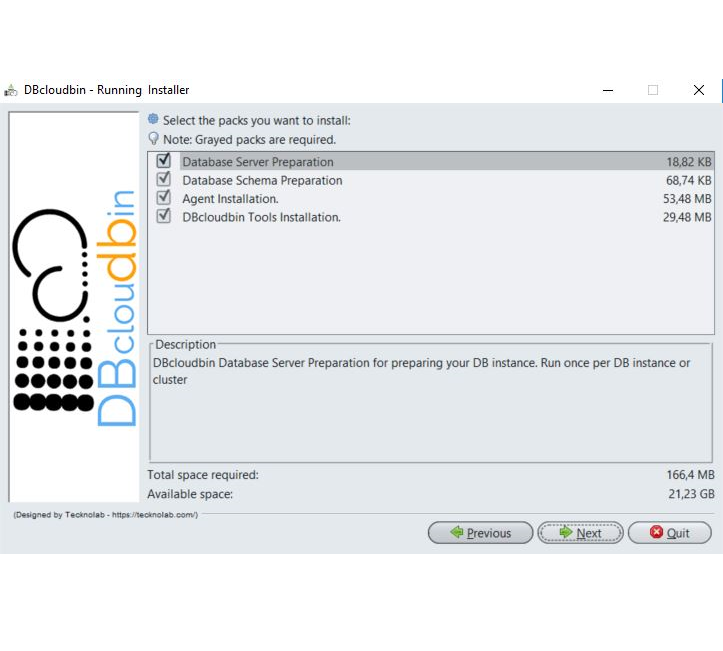DBcloudbin
About DBcloudbin
DBcloudbin Pricing
DBcloudbin offers a free trial for new users, after which the pricing is based on per volume stored per month. The service charge is as follows: • GB of BLOB store, geographically replicated - $012/month • Enterprise Support services - $240/month • DBcloudbin SW - Available to users for free
Starting price:
$76.00 per month
Free trial:
Available
Free version:
Available

Most Helpful Reviews for DBcloudbin
3 Reviews
Francisco
Information Technology and Services, 10,000+ employees
Used daily for less than 6 months
OVERALL RATING:
5
EASE OF USE
5
VALUE FOR MONEY
5
CUSTOMER SUPPORT
5
FUNCTIONALITY
5
Reviewed October 2020
Reducing Your Enterprise Database Infrastructure Costs.
Immediate cost reduction due to not having to do infrastructure upgrades. Inmediate Backup reduction. Immediate ROI.
PROSIn general, by his integration with the cloud concept. In particular, by the integration with the HCP private cloud concept.
CONSThe integration with the business process has been good. "Nothing relevant that I am aware of"
Reason for choosing DBcloudbin
As of day, there isn't product doing the same.
Luis
Civil Engineering, 11-50 employees
Used daily for less than 2 years
OVERALL RATING:
4
EASE OF USE
5
VALUE FOR MONEY
4
CUSTOMER SUPPORT
4
FUNCTIONALITY
4
Reviewed October 2020
Solved our problem without added complexity
We have a projects management application with a large database due to a lot of large contents (maps, images, documents). It was expensive and generated problems to our technical team to administer it (slow, large backups,...). We have reduced the DB by something like 80% without any additional change. Now the backups are taking 30 minutes instead of several hours. We have now space in our DB server storage for additional applications without any storage upgrade.
PROSEasy implementation. It solves the basic problem of DB costs reduction without complexity.
CONSThe product and documentation is only available in English.
Reason for choosing DBcloudbin
N/A
Vendor Response
Thank you for your confidence in our solution. Our goal is to provide a simple solution that does not require a lot of technical expertise to implement and use.
Replied October 2020
Zoraida
Computer Software, 10,000+ employees
Used daily for less than 12 months
OVERALL RATING:
4
EASE OF USE
4
CUSTOMER SUPPORT
4
FUNCTIONALITY
4
Reviewed October 2020
Ideal complement for Exadata Database
Saves storage cost in Oracle Exadata environments when you need save documents in your database
CONSIt does not have a plugin that automatically frees the space in the database when documents are extracted from it.
Vendor Response
Thanks for the review. In fact the space is freed up at the Oracle tablespace (so it will not grow when ingesting new data but reuse the existing free space). It is true that in order to compact the tablespace and reduce it from a physical perspective it is required a one-time Oracle DBA regular admin operation; but it is very detailed documented in Oracle admin procedures.
Replied October 2020
